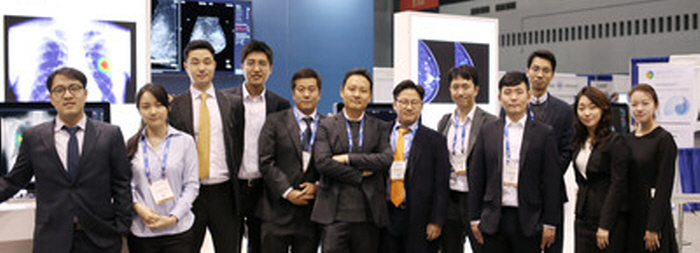
Lunit, based in Seoul Korea announced on December 30 that X-rays are a form of electromagnetic radiation used to detect and diagnose various injuries and diseases, such as bone fractures, lung cancer, and breast cancer. According to PR Newswire, compared to computed tomography (CT) and magnetic resonance imaging (MRI) scans, x-rays are simpler and relatively less expensive. However, since the images must still be interpreted by doctors, the technique still has one critical weakness: occasionally, doctors fail to notice the signs of disease.
Lunit's AI interprets x-ray images and lowers the misdiagnosis rate
Lunit Inc., a member company of the K-ICT Born2Global Centre, has developed a deep learning-based technology for analyzing medical images that dramatically lowers the rate of misdiagnosis. Currently, the AI technology is being subjected to a sophistication process in cooperation with major medical institutions in Korea, including Seoul National University Hospital, Severance Hospital of Yonsei University Health System, Samsung Medical Center, and Asan Medical Center.
Anthony Paek, the CEO of Lunit, explained, "The data-driven imaging biomarker (DIB) technology that Lunit proposed for the first time ever in 2015 is an AI system that has learned abnormal and clinically significant image patterns from big data." He went on to add, "Currently, DIB technology has achieved an accuracy level comparable to that of human experts. In the future, however, we will have new DIB technologies capable of outperforming humans."
Lunit's DIB technology, called Lunit INSIGHT, uses AI technology to analyze existing x-ray images to help doctors make more accurate diagnoses. So far, the results of clinical trials have shown that using this technology increases diagnostic accuracy by 14 percentage points. Based on deep learning, an AI skill-building practice that makes use of big data and artificial neural network technologies, Lunit INSIGHT is capable of accurately analyzing images. Paek explained, "Most medical imaging AIs have been directly and indirectly influenced by DIB technology. Since we now have access to the big data of hospitals and are capable of processing DIB learning from various perspectives, the future potential of our company seems quite high."
The top AI dream team in the world--better than those of Google and Tencent
With a medical AI research team consisting of 12 deep learning researchers and three medical doctors, Lunit has developed the best deep learning and computer vision technologies in the world. At the 2015 ImageNet Large Scale Visual Recognition Competition, it ranked fifth in terms of object detection and localization, surpassing the teams of Google and Tencent. Lunit's technology has gained recognition around the world through the company's participation in international competitions, ranking first in the Tumor Proliferation Assessment Challenge (TUPAC) in 2016 and Camelyon in December 2017. Also in 2017, Lunit was also the only Korean company included on CB Insights' "AI 100," which ranks the 100 most promising AI companies in the world, and secured an investment from K Cube Ventures, SoftBank Ventures, Formation 8, and Mirae Asset Venture Investment.
Lunit unveiled Lunit INSIGHT, its AI-based real-time medical image analysis software, at the end of November at the Radiological Society of North America in Chicago. Able to accurately detect the signs of major lung diseases, such as lung cancer, pneumonia, pneumothorax, and tuberculosis, from x-ray images, Lunit INSIGHT rapidly processes medical images to provide results in only seconds after the images are uploaded and boasts an accuracy of 98 percent. The software is expected to be used for clinical purposes in hospitals and medical centers starting in the second half of 2018.
Lunit CEO Paek said, "Lunit INSIGHT is the first AI-based medical image analysis program in the world that has been released in a final, usable state. Through this release, we plan to expand the basis for the industry so that more medical professionals can gain easy access to such image analysis software." In the first half of the next year, Lunit is expected to unveil a mammography solution that allows doctors to use Lunit INSIGHT for the early diagnosis of breast cancer.


